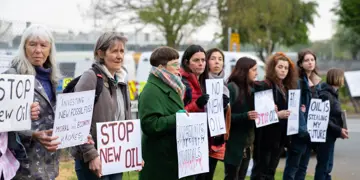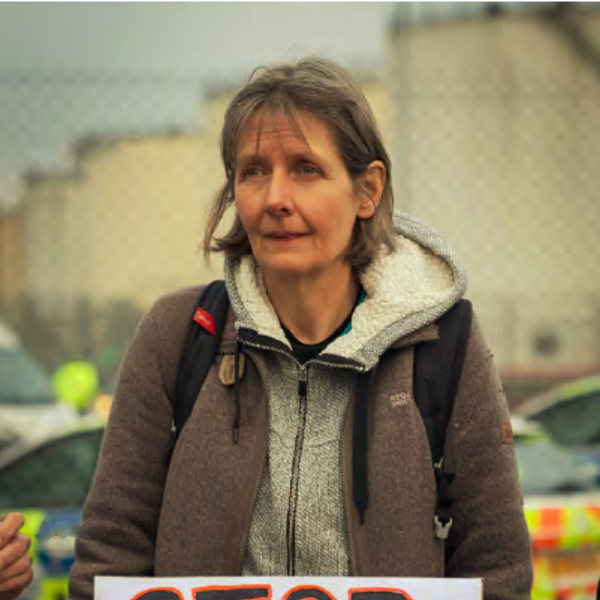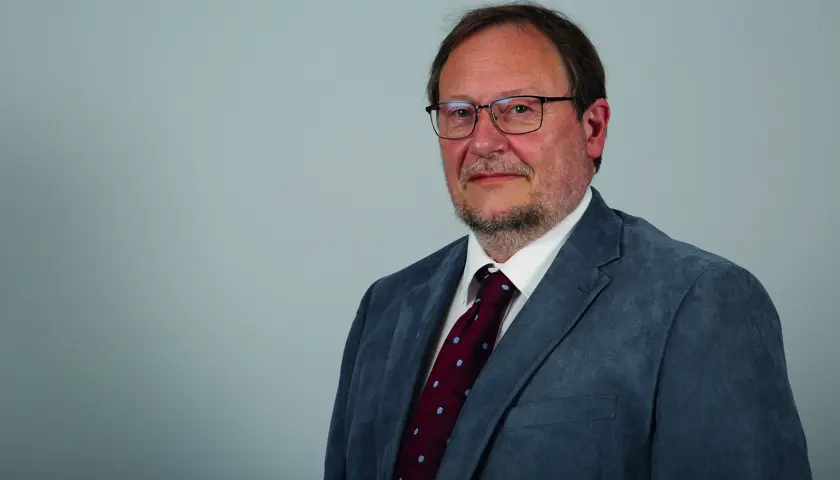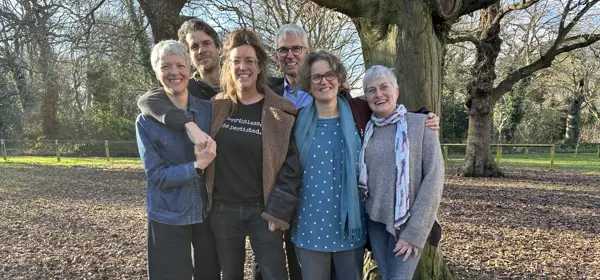BMA supports Dr Benn with appeal to High Court
BMA supports Dr Benn with appeal to High Court
Calls for GP and climate activist’s five-month suspension to be quashed
The British Medical Association is supporting GP and environmental activist Sarah Benn (second from left, above) with her appeal against the five-month suspension of her GMC registration.
A Medical Practitioners Tribunal Service panel concluded in April that, by repeatedly breaching a court injunction, and being found to be in contempt of court, Dr Benn’s actions amounted to misconduct.
The tribunal’s conclusion that her ability to practise has been ‘impaired’ was made despite there being ‘no clinical concerns’, and – speaking to The Doctor – Dr Benn argued the decision was ‘misguided’.
Dr Benn, who retired from clinical practice in 2022, joined a peaceful Just Stop Oil protest within a buffer zone at Kingsbury Oil Terminal on 26 April 2022 by ‘spreading out and sitting down across the road’, breaching an injunction which amounted to contempt of court. She was released on bail.
She returned to the terminal for another peaceful protest on 4 May 2022, this time standing on a grass verge at the side of the entrance holding a placard. This breached her bail conditions and resulted in eight days on remand in custody.
Appeal review
On 14 September 2022, Dr Benn attended another peaceful protest at Kingsbury, this time ‘sitting down on the road and blocking vehicular access’. As a result, she was jailed for 32 days.
She self-referred to the GMC over these incidents, as she had done for previous peaceful activism in 2019.
The BMA is supporting Dr Benn’s case, having previously provided her with legal advice on the merits of an appeal. It believes the tribunal was wrong to conclude she fell short of the standards of conduct reasonably to be expected of a doctor and questions the GMC’s understanding of its Good Medical Practice guidance’s expectation, as it applied at the time, to act within the law.
In her grounds for appeal, Dr Benn argues that despite the GMC's reliance on a principle that 'doctors must uphold the law', there are types of lawbreaking which do not result in referral to a tribunal unless there are aggravating features. These include speeding and talking on a mobile phone while driving. She submits that these acts 'can imperil public safety' and 'neither of which is motivated by altruistic objectives'.
The appeal also challenges the tribunal’s conclusion that a majority of the public and profession ‘would not condone breaking the law in the manner that Dr Benn repeatedly did’, arguing: ‘Whilst there will be some forms of conduct that are clearly and universally accepted as wrong, the same cannot be said with equal confidence about participation in non-violent direct action on environmental grounds.’
Patients’ interests
The BMA supports Dr Benn’s view that there is ‘no basis or evidence’ for this claim, only ‘supposition’. She argues there is ‘no adequate explanation’ for why not sanctioning her would have damaged public confidence in the medical profession or its regulation, because her motivation and beliefs in the threat to humanity from the climate emergency are based on objective evidence and because her action was non-violent.
The appeal also sets out that the sanction imposed on Dr Benn, a five-month suspension, was ‘excessive and disproportionate’, and ‘neither appropriate nor necessary in the public interest’.
It argues that the tribunal was wrong to conclude Dr Benn’s behaviour would ‘bring the profession into disrepute’ because it was ‘wholly unrelated’ to clinical practice.
The appeal to the High Court is asking for Dr Benn’s suspension to be quashed. It could also lead to the sanctions imposed on her to be changed, or the appeal could be dismissed.
The appeal comes after the BMA raised ‘serious concerns’ about the outcome of the tribunal in a letter to the GMC and said the tribunal’s conclusion ‘sends a worrying message to doctors’ about the regulation of matters not related to patient care or their clinical skills.





